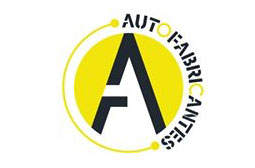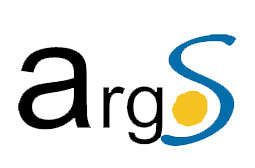This video has timestamped descriptions to allow viewers to jump to particular topics and sections. Links will open the video in YouTube.
Who are you and what is your relationship with the project Autofabricantes? 00:19
When, where and why did this project come about? 00:31
How many years has the project been functioning? 02:02
Where did the name Autofabricantes come from? 02:25
Are you a research group? 02:51
Are you planning on becoming an association or collective? 03:12
Can anybody join? What is the profile of the people that have joined so far? 03:46
The 15M Movement, for many of the collectives that I’ve been speaking with, represented a moment of reorganization, reinventing, regrouping. What has this movement represented for the people in your association? 04:25
This project came out of Medialab Prado, but how does this project sustain itself institutionally? 05:04
Would this research process be possible without institutional support? 06:03
How does a project like this sustain itself after the institutional support from Medialab ends? 06:59
How many people participate on this team? Are any of them salaried? 08:21
How many hours do the people involved in this project work as volunteers? 08:50
Thinking of the concept of “work”, what has “work” meant in the context of this project in Medialab? 09:19
In your web page it says the following: “This project establishes an ethical and political alternative to the current system of patents and high costs for prostheses in a closed-off industry.” Can you explain to us what problems come from the current system of prostheses and why it is not ethical? Why is it that your work is ethical? 09:55
In order for this project to be possible, it seems essential for there to be a combination of “new tools of digital manufacturing, open code, mutual care and the collaboration of a multitude of professionals and citizens.” Can you explain how all these elements combine on this project? 11:35
From what I’ve read you are a working group that has “communication without taboos.” What are the taboos that exist in the area of disabilities that you have decided to eliminate? 13:46
Do you offer some type of workshop to make your activities known? 13:58
You’ve written that, up to know, you have developed an arm-hand prosthesis and that you have been working with Paula (the young protagonist of the project) and her family on a long-term basis. Can you tell us the story about this family? 15:18
How do you work on updating the prostheses for the people you work with? 16:00
What difference is there between a 3D prosthesis and a commercial one? 16:44
How much does a prosthesis cost? 16:48
The families that receive these prostheses have to pay for them? 17:48
What does it mean to apply free license in the realm of prostheses? 18:24
Do you work with or form a network with other collectives? 18:43
Is Autofabricantes a political project? If so, what kind of politics are involved? 19:17
How many families have passed through Autofabricantes? 20:10
How do you select the families? 21:02
What have you learned working with these families? 21:28
How do you make decisions as a group? 22:10
Have you designed your own protocol for making sure the group performs well? 22:29
You come from the university environment. What relationship does the group have with universities? 23:27
There is a false division between the sciences and the humanities at universities. How do these two spheres integrate on this project? 24:08
Why do you believe in open code? 25:02
How did you get introduced to open code? 25:13
What are, from the perspective of Autofabricantes, the areas where we need to improve regarding functional diversity? 25:52
What do you think we need to learn as a society to help us collaborate more? 27:00
Do you have documents with information about your methodology or materials that explain your accomplishments? 27:38
Are there any tools or concepts that you have invented that you would like to share with us? 28:12
What does growth mean for Autofabricantes? 29:54
Keeping in mind the climate of general political indifference and insecurity in different aspects of life, how do you stay motivated and how do you deal with powerlessness? 30:34

The project Autofabricantes started in October 2015 when there was an open call for proposals by Medialab-Prado in order to select cultural and research projects in different areas of social innovation related to technology, culture, etc.





